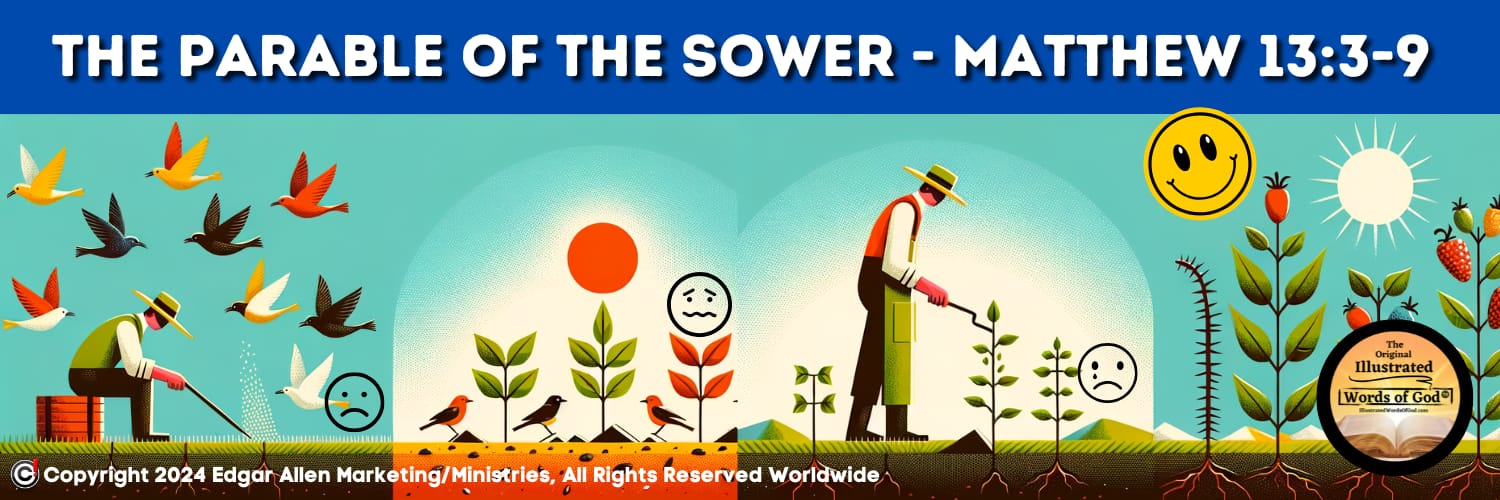Introduction
The Parable of the Sower, found in the book of Matthew in the Bible, is a powerful teaching by Jesus that continues to resonate with believers today. In this parable, Jesus uses the analogy of a sower scattering seeds on different types of soil to illustrate the different ways people receive and respond to the message of faith. As we delve into the meaning behind this parable, we can uncover valuable insights on how to cultivate and nurture our own spiritual growth.
Different Situations
The parable begins with a sower going out to sow seeds. Some seeds fell along the path and were eaten by birds, some fell on rocky ground and sprouted quickly but withered away due to lack of roots, some fell among thorns and were choked, and some fell on good soil and produced a bountiful harvest. Jesus goes on to explain the significance of each scenario, highlighting the importance of having a receptive heart to receive and cultivate the seeds of faith.

What Is The Meaning Of These Situations
The seeds represent the Word of God, which is sown into the hearts of people. The different types of soil represent the different conditions of our hearts. The seeds that fell along the path symbolize those who hear the message but do not understand or accept it, allowing the enemy to snatch it away. The rocky ground represents those who receive the message with joy but quickly fall away when faced with challenges or persecution. The thorns represent those who hear the message but are distracted by the worries and pleasures of this world, preventing the seeds from taking root. And finally, the good soil represents those who hear, understand, and embrace the message, bearing fruit in abundance.
The Most Important Thing
As we reflect on the Parable of the Sower, we are reminded of the importance of cultivating a heart that is receptive to the Word of God. Just as a farmer prepares the soil before planting seeds, we must prepare our hearts to receive and nurture the seeds of faith. This requires an openness to God’s Word, a willingness to listen and learn, and a commitment to follow His teachings. By tending to our spiritual soil with prayer, study, and reflection, we can create fertile ground for the seeds of faith to take root and grow.
Be Mindful Of Messages Of Faith
In our busy and often distracting world, it can be easy to allow the worries and pleasures of life to choke out the message of faith. The Parable of the Sower challenges us to be mindful of the condition of our hearts and to prioritize our spiritual growth above all else. This may require making intentional choices to prioritize time with God, to seek out community and fellowship with other believers, and to guard our hearts against the distractions and temptations that threaten to hinder our faith.
Faith Provides A Transformation
When we embrace the message of faith and allow it to take root in our hearts, we can experience a transformation that bears fruit in every aspect of our lives. Just as the seeds sown on good soil produced a bountiful harvest, so too will our faith produce a life that is abundant, joyful, and fruitful. Our relationship with God will deepen, our love for others will grow, and our actions will reflect the grace and truth of the Gospel.
Conclusion
The Parable of the Sower serves as a timeless reminder of the importance of tending to the condition of our hearts and cultivating a spirit of receptivity and openness to the message of faith. By sowing the seeds of faith in our lives and nurturing them with care and intentionality, we can experience a transformation that will bear fruit for the glory of God. May we be like the good soil, ready to receive and nurture the seeds of faith, so that we may grow in our relationship with God and live out His purpose for our lives.


